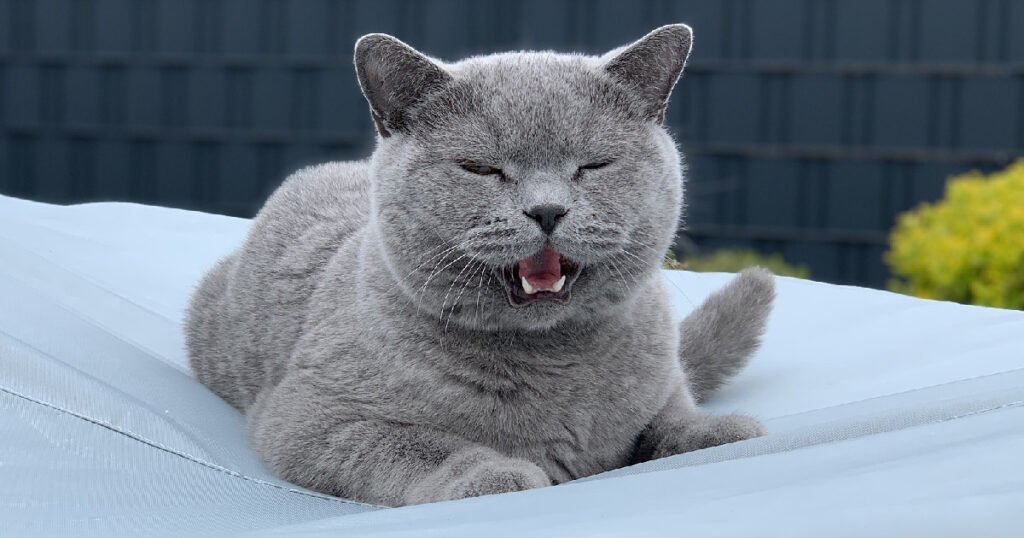For those who love cats, the sound of a cat meowing is like a magical melody that brings joy. And when a cat meows back in response during a conversation, it’s just pure preciousness! But why do cats meow?
Cats often use meowing to communicate with people, relying more on scent and body language when interacting with other cats. John Wright, a psychologist from Mercer University who studies animal behavior, explains that cats know how to manipulate us. According to Wright, “Vocal communication becomes a tool.” When a cat meows at their human, a lot can be conveyed with just that one sound.
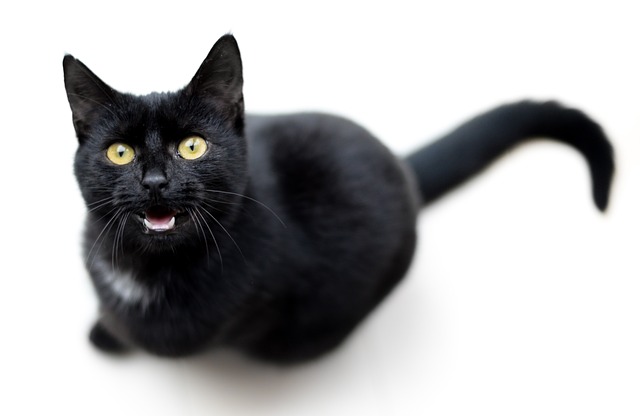
While every cat is unique, some felines enjoy “talking” more than others. It’s just part of their personality. Certain cat breeds are known for being more vocal. Is your cat naturally chatty, or is it influenced by their genetics? If it’s a bit of both, your home probably has a lot of meowing going on!
So, what are cats trying to say with all those meows?
Cats use meowing to express their emotions and communicate their desires. Each meow has a specific meaning, and by paying attention to the tone, length, and volume of your cat’s meows, you can start to understand what they’re trying to tell you. With enough interaction, you’ll become fluent in “feline speak.”
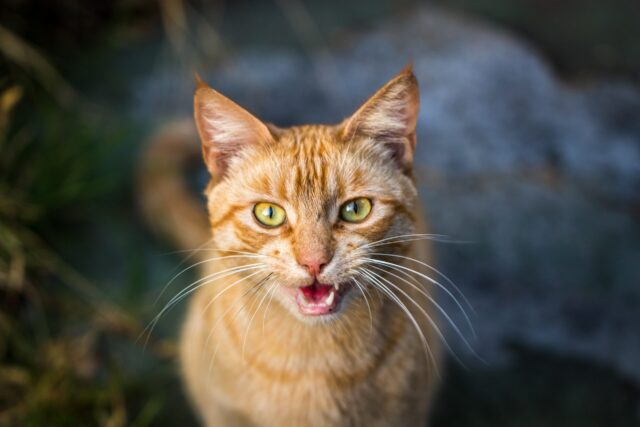
To help you get started on understanding your cat’s meows, here are some reasons why your cat may be meowing at you.
The Glossary of Cat Meowing and The Reasons Behind Them
1. Crying for Mom
From the moment they are born, kittens use their meows to communicate with their mother when they need her. These cries are frequent, especially since newborn kittens can’t see until their eyes open after 8-12 days. Imagine being in a new world with no sight—it’s stressful for a kitten, and those cries bring their mother running to comfort them with purrs and kisses.
As kittens grow, they learn to use their meows more selectively, usually to get attention. And just like their feline mothers, human cat parents tend to respond quickly when their kittens start meowing!
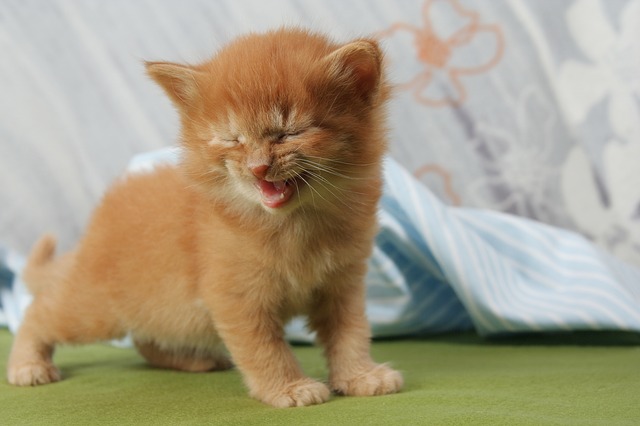
2. Just a Cat Meowing Hello
When your cat enters a room, she might greet you with a charming meow that sounds like she’s saying “hello” or “hi.” Cats are intelligent animals and can mimic some of our speech when we engage in conversations with them. They often pick up on the greetings we use with them.
After coming home or entering a room where your cat is, you may receive a short, cute meow as a greeting. If you hear multiple sweet meows in a row, know that your cat is thrilled to see you. Could cats get any more adorable?
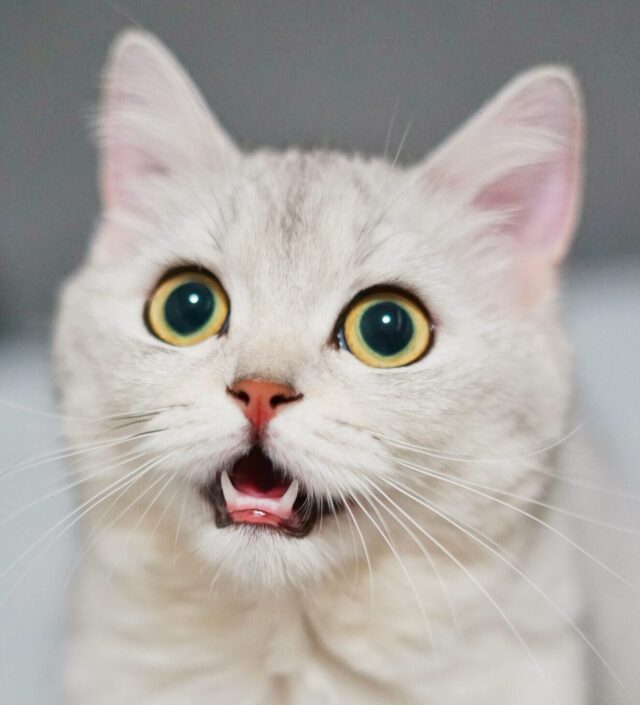
3. Feed Me, Right Meow!
Every cat owner knows the unmistakable cry of hunger—a loud, demanding meow. When your cat starts meowing like this, you know it’s time to fill their food bowl. Until their hunger is satisfied, your cat will keep meowing persistently! Watch out for the accompanying “tripping the human” game, where the cat twines around your legs and deliberately walks in your path to get your attention. Anything to get that meal!
4. Midnight Meowing Madness
We all know that cats are active at night, but why do they meow so much during the night? Since cats sleep for a large part of the day (about 12-16 hours), it’s no surprise they become active at night, seeking entertainment. However, the meow you hear in the middle of the night is usually not gentle.
It’s often a loud, searching meow that can startle you from your sleep. But then you realize it’s just your curious cat wanting to play. When morning comes and your cat is napping, it’s your turn to show affection by cuddling your midnight meower! Take that, noisy night owl!
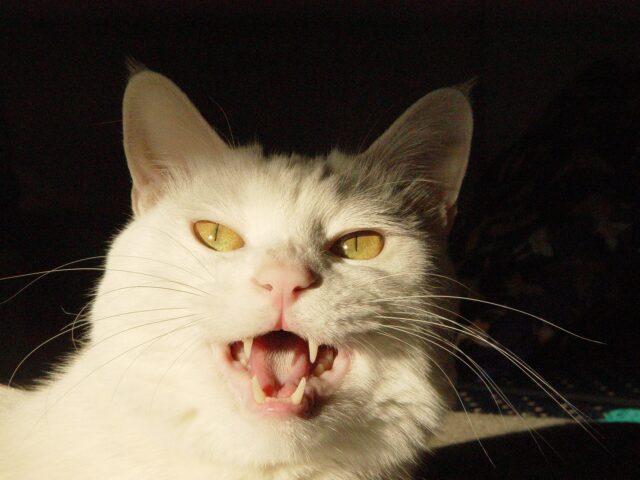
5. Outside Overtures in the Key of Meow
When your cat meows to go outside, it usually starts as a polite request but can escalate into a loud, persistent demand for attention. The tone of the “I want out” meow carries a sense of pleading. Your cat may be staring out the window or lingering near the door, yearning to explore the great outdoors. If your cat is indoor-only, distract them with playtime or new things to explore to satisfy their curiosity.
6. I Am Hunter, Hear Me Mew
Have you ever seen your cat’s jaw chatter while watching a bird or squirrel? Their voice may also chatter along with their jaw movements. These sounds give the impression that your cat is trying to mesmerize their prey with their special cat powers. Researchers studying cat behavior have proposed a few theories on why cats chatter at birds and rodents. Cats may meow for various reasons, such as mimicking prey, feeling frustrated, or expressing excitement over a kill. Regardless of the reason, when a cat starts meowing, it’s a clear sign they have entered hunter mode. To address this issue, it is recommended to consult with a veterinarian.
Desire to Mate
Unspayed or unneutered cats can become very vocal. Female cats in heat will meow incessantly in search of a mate, while males will yowl as they try to locate them. The clamor of desire can continue for hours on end! It is advisable to have all cats spayed or neutered to prevent this behavior.
Transforming Cat Cries into Happy Meows
If your cat is excessively meowing for any reason, it is important to schedule a visit to the vet. Cats are resilient animals, making it difficult to determine when they are unwell. Continuous crying and meowing may be the sole indicator of an underlying issue. Pay attention to your cat’s vocalizations and seek the necessary assistance to ensure their well-being.
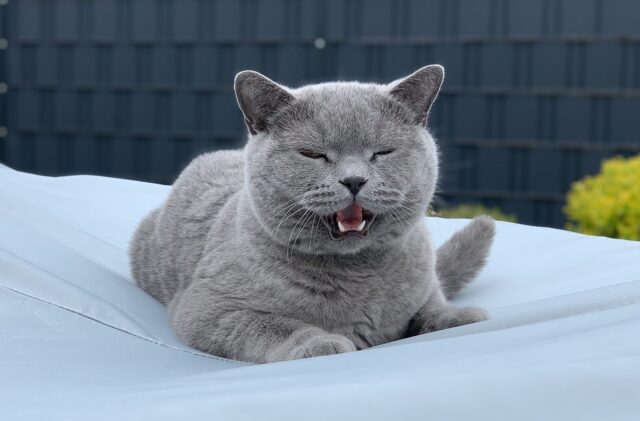
When helping your cat return to normal levels of vocalization, patience is key. Cats do not respond favorably to negative reinforcement methods like shouting or using a water spray. It is crucial to never resort to hitting or spanking a cat. Instead, consider positive reinforcement techniques and potentially implement clicker training to discourage excessive meowing.
Every Meow is Significant
Whether it’s a friendly greeting or a plea for assistance, your cat’s meow is their way of communicating—and they rely on you to listen. By paying attention to the tone, timing, and context of their meows, you will better comprehend what your feline companion is trying to convey. Some meows may be playful, while others may indicate a serious issue, but each one contributes to the unique bond you share with your cat. So, the next time your cat vocalizes, don’t just hear them—listen.
Remember, everything your beloved feline expresses is important. Take the time to listen and engage in meaningful conversations with your cat!
following sentence using different words:
Original: The cat chased the mouse around the house.
Rewritten: The mouse was chased around the house by the cat.

